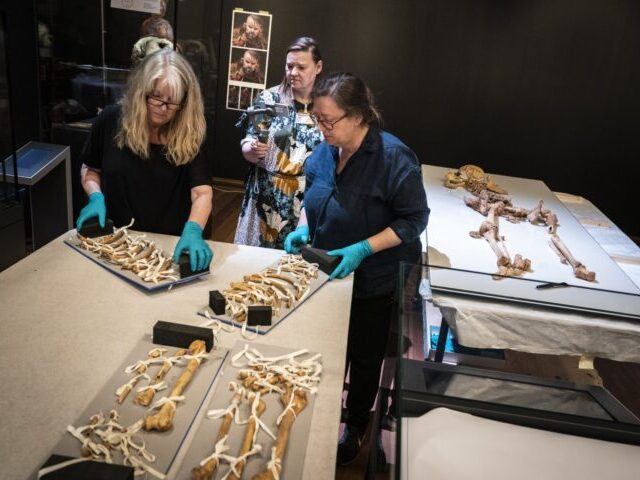LGBT activists are pushing to bar anthropologists from identifying human remains as “male” or “female,” arguing that scientists cannot know how an ancient individuals identified themselves.
Canadian Master’s degree candidate Emma Palladino took to Twitter earlier this month to point out that transgender individuals “can’t escape” their sex, not because it’s physically impossible to change one’s sex, but because archaeologists who find their bones one day “will assign you the same gender as you had at birth.”
“My trans+non-binary friends: You might know the argument that the archaeologists who find your bones one day will assign you the same gender as you had at birth, so regardless of whether you transition, you can’t escape your assigned sex,” Palladino wrote in a tweet, which has since garnered over 10,000 retweets, and more than 59,000 likes.
In a follow-up tweet, Palladino said, “gender + queer archaeologists and scholars have been working for decades to unpack assumptions that archaeologists make about gender and identity, both today and in the past.”
“No field is perfect, and there’s absolutely more work to be done, but by and large, archaeologists are acutely aware of how culturally and spatially relative the concepts of sex, gender, and identity are,” she added.
Palladino, who believes that assigning biological sex to ancient human remains is “bullshit,” added that “labeling remains ‘male’ or ‘female’ is rarely the end goal of any excavation, anyway.”
“The ‘bioarchaeology of the individual’ is what we aim for, factoring in absolutely everything we discover about a person into a nuanced and open-ended biography of their life,” she argued.
“There’s absolutely more work to be done, and more education, empathy, and sensitivity is very much required in the field of archaeology,” the student continued.
Palladino went on to reassure the transgender community that even if “some shitty archaeologist in the future misgenders” them, they will still get to be whoever they want to be, even when they’re dead.
“And even IF some shitty archaeologist in the future misgenders you, that will never change who you were, regardless of whether you’ve medically or socially transitioned, regardless of anything,” she wrote. “You are you, a dignified human, and always will be, even in death.”
Palladino is not alone in this line of thinking. There is now a group called the Trans Doe Task Force, which seeks to “explore ways in which current standards in forensic human identification do a disservice to people who do not clearly fit the gender binary.”
“We propose a gender-expansive approach to human identification by combing missing and unidentified databases looking for contextual clues such as decedents wearing clothing culturally coded to a gender other than their assigned sex,” the group’s mission statement reads.
The statement continues:
We maintain our own database of missing and unidentified people who we have determined may be Transgender or gender-variant, as most current database systems do not permit comparison of missing to unidentified across different binary sex categories. We engage directly with the wider forensic science community to explore ways to dismantle damaging and ineffective practices in the investigative process. We also reach out to law enforcement departments which may have cases involving a gender-variant decedent and offer our services as forensic genetic genealogists.
Earlier this year, University of Kansas associate professor Jennifer Raff published “Origin: A Genetic History of the Americas,” in which she argued that there are “no neat divisions between physically or genetically ‘male’ or ‘female’ individuals.”
As scientists examine possible evidence of female hunters at an ancient site in Peru, Raff suggests that we have no idea whether a 9,000-year-old biologically female Peruvian hunter had considered herself female, and claims that the concept of only being male or female was “imposed by Christian colonizers.”
You can follow Alana Mastrangelo on Facebook and Twitter at @ARmastrangelo, and on Instagram.


COMMENTS
Please let us know if you're having issues with commenting.